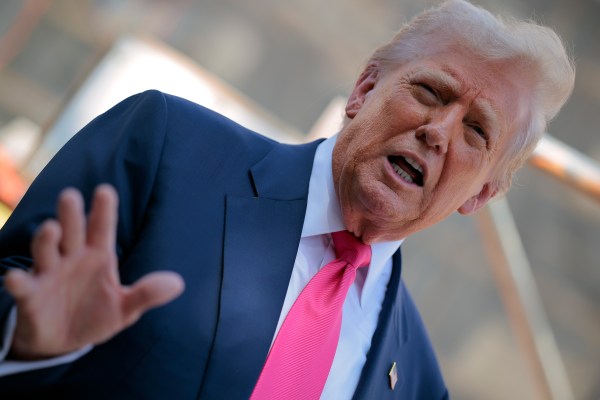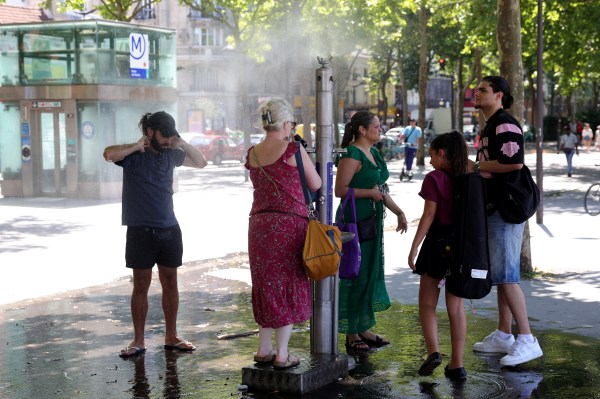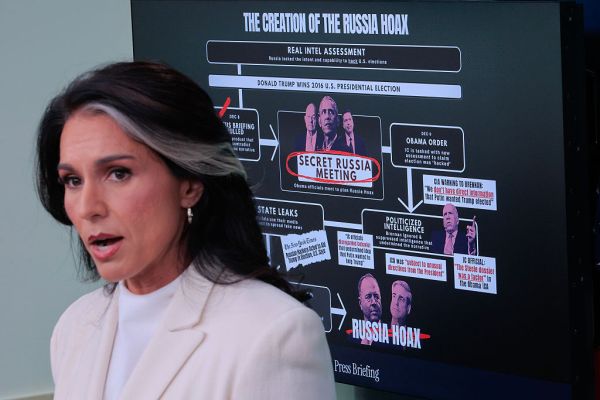In 2007, a convoy of terrorists disguised as defense contractors made it through security at a U.S. base in Karbala, Iraq. Once inside they opened fire and killed one U.S. soldier before taking four others hostage and fleeing. During the pursuit the terrorists executed three hostages and left one to eventually die of his wounds.
In 2019 the U.S. State and Treasury Departments designated the attack’s mastermind, Qais al-Khazali, a terrorist. Yet al-Khazali, whose terror group has received strong backing from Iran, has become a prominent political leader in Iraq. Last week, he was a featured speaker at a multi-day conference in Baghdad with other diplomats and analysts—along with an assistant U.S. secretary of state. Does U.S. government participation in such an event legitimize terrorists like al-Khazali?
“It sends a troubling message from the United States to have senior U.S. officials participating in a conference, which also hosted Qais Khazali, who is personally sanctioned by the United States,” Jason Brodsky, policy director of United Against Nuclear Iran, told The Dispatch, “Washington has to guard against the normalization of these figures.”
After being kicked out of Iraq insurgent leader Muqtada al-Sadr’s militia in 2004, al-Khazali helped found another militant Shiite political group that would later become known as Asa’ib Ahl al-Haq (AAH). It also got backing from Iran and was the group that executed the Karbala raid in 2007. AAH is now part of the current Iraqi cabinet, despite earning foreign terrorist designation from the U.S. government a year after its founder did.
The multi-day event at which the U.S. official and al-Khazali spoke last week was the Iraq Forum 2023, organized by the Middle East Research Institute (MERI), the Iraq Institute for Dialogue, and Al-Nahrain Centre for Strategic Studies. It was the inaugural event of the Iraq Forum, which MERI described as a “unique platform for national and international stakeholders to share visions, debate strategies and offer policy recommendations on the country’s major challenges.
According to the event’s program, Assistant Secretary of State for Near Eastern Affairs Barbara Leaf spoke in one session on May 2. Al-Khazali spoke the next day on another panel featuring Iraqi political leaders.
Leaf did not respond to a request for comment from The Dispatch, nor would the State Department answer questions about whether it was aware of al-Khazali’s attendance before scheduling Leaf. Instead, a State Department official sought to downplay the episode, saying Leaf and al-Khazali didn’t speak at the forum on the same day.
“Assistant Secretary Leaf was never in the same room with him,” the official told The Dispatch.
The speaker list, along with the forum’s detailed program, was on the Iraq Forum website the week of the event and showed that al-Khazali was “invited, pending confirmation.”
Al-Khazali has a long history as an adversary of the United States and is most notorious for the 2007 attack. And al-Khazali’s brother, Leith, was also involved. AAH’s brutal methods, including abductions, killings, and torture are well-documented. The group has committed atrocities against members of its own population, with Iran’s support.
During a raid two months after the Karbala attack, British forces captured both Khazali brothers and handed them over to U.S. forces, along with a senior Hezbollah figure, Ali Mussa Daqduq. Information garnered during that raid confirmed that Iran’s Islamic Revolutionary Guard Corps (IRGC) Quds Force had helped plan the January attack, along with Qais al-Khazali.
But al-Khazali would be released from U.S. custody in December 2010 at the same time AAH released a British contractor, Peter Moore. The United States denied negotiating a deal to secure the release of Moore and attributed the releases to reconciliation attempts, according to reporting from Foundation for Defense of Democracies’ Bill Roggio, who has covered al-Khazali for years.
Today al-Khazali is secretary general of the group. On December 31, 2019, then-Secretary of State Mike Pompeo also identified al-Khazali as one of the main orchestrators of an attack that day on the U.S. embassy in Baghdad, aided by Iranian forces.
It is “devastating” for U.S. officials to appear at the same conference as a terrorist, Roggio said. Even if just an oversight, the move “signaled that it accepts and approves of the involvement of an Iranian-backed Foreign Terrorist Organization and its leader, Qaiz al Khazali, in Iraqi politics and security matters. The Iranians are most certainly emboldened.”
Both Brodsky and Roggio said the United States needs to guard closely against similar instances in future.
“State has demonstrated that it does not understand the political dynamics in Iraq, and the importance and influence that terrorist leaders such as Khazali play in Iraqi politics,” Roggio added. “Those at the embassy who should know better appear to be out to lunch.”






Please note that we at The Dispatch hold ourselves, our work, and our commenters to a higher standard than other places on the internet. We welcome comments that foster genuine debate or discussion—including comments critical of us or our work—but responses that include ad hominem attacks on fellow Dispatch members or are intended to stoke fear and anger may be moderated.
With your membership, you only have the ability to comment on The Morning Dispatch articles. Consider upgrading to join the conversation everywhere.